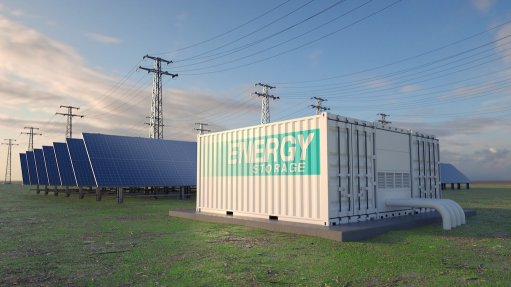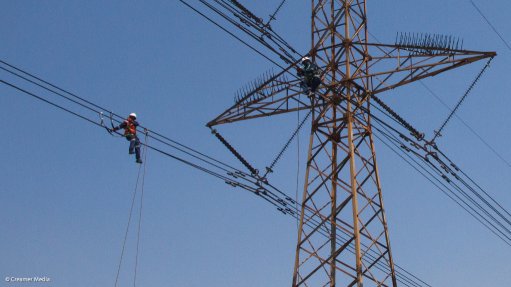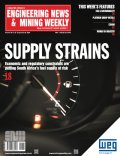Responsible Mining and Sustainable Development Goals: A Shared Value Perspective
This article has been supplied.
By Sizwe Phakathi and Sietse van der Woude
Mining companies worldwide are increasingly required to account and disclose their impacts on society, environment and corporate governance through various reporting standards and frameworks. The perception of the contribution of the mining industry by various stakeholders is influenced by the extent to which it addresses the environment, social and governance (ESG) issues in host communities. The Ernst & Young 2022 report identified ESG as the very first of the top 10 business risks and opportunities for mining and metals in 2023.
A content analysis of 2020/21 integrated annual reports of sixteen South African mining companies and other publicly available datasets revealed encouraging contributions of the mining firms on the United Nations’ sustainable development goals (SDGs). The SDG impacts of South African mining companies varies across the seventeen SDGs goals. As shown below, the analysis of mining company integrated annual reports revealed that the mining corporates’ SDGs impacts were largely on SDG 8 (Decent Work and Economic Growth) – a finding consistent with the findings of study conducted on European mining companies’ contribution to the SDGs[3], SDG 9 (Industry, Innovation and Infrastructure), SDG 11 (Sustainable Cities and Communities), SDG 10 (Reduced Inequalities), SDG 1 (No Poverty), SDG 4 (Quality Education) and SDG 3 (Good Health and Well-Being).
The remarkable contribution of the mining companies on the above-mentioned SDGs is not surprising given the role that mining plays in the achievement of social and economic related SDGs. The performance of mining in these social and economic related SDGs ranges from employment creation, enterprise development, empowerment and transformation through targeted procurement activities including women, youth and the disabled, royalties, taxes, wages, salaries and dividends paid by the mining industry contribute positively to poverty alleviation, school and health care infrastructure development, provision of health care services, water and food, agriculture, COVID-19 intervention programmes, education, skills development and training programmes, enterprise development in mining communities, research and development, technology and innovation in partnership with universities, research organisations and suppliers to improve occupational health and safety, operational efficiency and productivity. Despite the regressions in occupational and safety performance in 2020 and 2021, the South African mining industry has made great strides over the past 28 years in reducing the number of fatalities, injuries and diseases. There is an increasing number of companies achievement fatality free production shifts for significantly longer periods than was previously the case.
Since the advent of democracy, there has been an increasing number of women employed in the South African mining industry including increasing number of women employed in senior management, executive and Board level positions. The mining impact on SDG 5 (Gender Equality) shows that while it is encouraging that there has been an increasing representation of females, there is still much more work to be done to address female representation, inequality and discrimination. The PricewaterhouseCoopers Executive Directors Report 2022 revealed 15% of women in executive management positions of the top 100 companies listed on the Johannesburg Stock Exchange (JSE). The PwC Report discovered that only seven (8%) companies were led by female Chief Executive Officers (CEOs) and 19% were Chief Financial Officers (CFOs) (an improvement from 17% in the previous year). In February 2022, Rio Tinto’s Report on Workplace Culture released highlighted that bullying, harassment and racism were not just a problem in South African mining firms but also in their operations across the globe. The findings of these reports indicate that there is still much to be done by corporate South Africa to address the objectives of SDG 5 despite the progress made over the past three decades.
It is encouraging that in 2021, the Minerals Council South Africa – an association representing private sector mining companies – launched the Women in Mining Leadership Forum and that the Mining Health and Safety Council, a tripartite institution comprising stakeholders from government, organised business and organised labour, has committees, initiatives and programmes focusing on the occupational health and safety needs of Women in Mining. Furthermore, the Mine Health and Safety Act Amendment Bill currently reviewed at National Economic Development and Labour Council (NEDLAC) seeks to ensure that personal protective equipment (PPE) for women miners is stipulated in the Act. The efforts by some Minerals Council member mining companies against the scourge gender-based violence (GBV) cannot be ignored.
Furthermore, the analysis of the integrated annual reports reveal that the mining companies have action plans, financial spend and targets to achieve the environmental SDGs relating to climate change (SDG 13), clean water and sanitation (SDG 6), affordable and clean energy (SDG 7) and responsible consumption and production (SDG 12). With a just renewable energy transition associated with the Paris Agreement decarbonisation goals and targets, it is envisaged that the mining industry’ performance on environmental SDGs will gradually increase. The mining companies are taking the necessary steps to address their negative impact on Life on Land (SDG 15) including protection of biodiversity.
The Jagersfontein tailings storage facility failure poses questions about the South African mining industry’s ability to manage tailings dams in a safe, responsible and transparent manner. We should not forget the catastrophic disaster following the collapse of the of Vale’s Córrego do Feijão mining complex tailings dam in Brumadinho, Brazil, that claimed 270 lives on 25 January 2019. It is envisaged that as mining companies review and align their tailings storage facilities with the Global Standard on Tailings Management launched by the International Council on Mining and Metals (ICMM) in August 2020, this will improve the mining industry’s performance impact on the protection of life on land. The mining impact on Life Under Water (SDG 14) is unsurprisingly shallow given the nature and make-up of South African mining operations.
There is strong evidence that where stakeholder collaborations and partnership (SDG 17 – Partnership for Goals) exist, mining operations enjoy a great deal of harmonious and constructive s relationships and are less disrupted by labour strikes and community unrests, resultantly impacting positively on SDG 16 (Peace, Justice and Strong Institutions). In such settings, mining operations are socially licensed and accepted to operate peacefully. It would be a fallacy to expect that the mining industry can solely achieve SDGs without the role played by other stakeholders – government, municipalities, trade unions, employees, suppliers, customers, communities and civil society organisations. Hence the significance of stakeholder capitalism is at the heart of shared value creation through SDGs which provide a comprehensive and practical framework that can be linked with ESG considerations.
To conclude, it is encouraging that the publicly listed companies such as those in the mining industry have started, voluntarily so, to report the extent to which their business activities are impacting and contributing to the achievement of SDGs. While the above snapshot depicts an encouraging performance impact of mining companies on the SDGs, there is a need to review, consolidate and align the various fragmented reporting standards and frameworks on sustainability performance reports. It is important to link and integrate the ESG framework to the SDGs from financial and non-financial perspectives. This will in turn enhance the investment decision-making processes and accelerate shared value creation in a much more impactful, responsible and sustainable manner.
Although non-mandatory, the SDG framework provides a useful starting point for such an exercise towards achieving shared value outcomes in host communities. Linking ESG considerations to the SDGs provides business organisations with a comprehensive framework with which to measure the financial and non-financial impacts of their business activities on the well-being of society, environment, economy and people.
Lack of financial data relating to some of the SDGs, especially the social related SDGs, has been used as an excuse for the reluctance to link corporates’ sustainability activities to the SDGs as if shared value creation and responsible investment decisions are solely based on quantitative judgements without consideration of the qualitative experience of corporate actions and practices by those residing in the settings in which they operate. Data collation on various SDG impact indicators and metrics – the way it is recorded, standardised, used, interpreted and presented in sustainability reports is key to demonstrating the business impact on the SDGs and how the goals broadly enable business organisations to comprehensively demonstrate their past, current and future societal, environmental and economic contributions. Mining companies have operations in different remote geographical locations. The sustainability reports reveal varied levels of mining companies’ diverse geographical contributions to the SDGs on a broader scale. There is a need for much more localised and holistic SDG impacts as the mining companies increasingly integrated and report of their responsible and sustainable practices in host communities and countries. In doing so, pockets of excellence, best practices and learnings can be identified and shared for peer learning and sustainability improvement purposes.
Long-term thinking, mapping and integration of the SDGs in business activities will position South African mining firms as a global champion in creating sustainable social and business value. Linking business activities to each of the SDG, Robust engagement with the SDGs can help mining firms in linking their business activities to each of the SDGs. This will assist to maximising the impacts of mining firms on the various SDGs given that some of the goals are interconnected. This is crucially important to ensuring that the mining companies and other private sector organisations move beyond compliance and tick-box type approaches in response to pressures from government, regulation and legislation, associations and civil society to undoubtedly being seen and experienced as responsible corporate citizens in host communities.
Comments
Press Office
Announcements
What's On
Subscribe to improve your user experience...
Option 1 (equivalent of R125 a month):
Receive a weekly copy of Creamer Media's Engineering News & Mining Weekly magazine
(print copy for those in South Africa and e-magazine for those outside of South Africa)
Receive daily email newsletters
Access to full search results
Access archive of magazine back copies
Access to Projects in Progress
Access to ONE Research Report of your choice in PDF format
Option 2 (equivalent of R375 a month):
All benefits from Option 1
PLUS
Access to Creamer Media's Research Channel Africa for ALL Research Reports, in PDF format, on various industrial and mining sectors
including Electricity; Water; Energy Transition; Hydrogen; Roads, Rail and Ports; Coal; Gold; Platinum; Battery Metals; etc.
Already a subscriber?
Forgotten your password?
Receive weekly copy of Creamer Media's Engineering News & Mining Weekly magazine (print copy for those in South Africa and e-magazine for those outside of South Africa)
➕
Recieve daily email newsletters
➕
Access to full search results
➕
Access archive of magazine back copies
➕
Access to Projects in Progress
➕
Access to ONE Research Report of your choice in PDF format
RESEARCH CHANNEL AFRICA
R4500 (equivalent of R375 a month)
SUBSCRIBEAll benefits from Option 1
➕
Access to Creamer Media's Research Channel Africa for ALL Research Reports on various industrial and mining sectors, in PDF format, including on:
Electricity
➕
Water
➕
Energy Transition
➕
Hydrogen
➕
Roads, Rail and Ports
➕
Coal
➕
Gold
➕
Platinum
➕
Battery Metals
➕
etc.
Receive all benefits from Option 1 or Option 2 delivered to numerous people at your company
➕
Multiple User names and Passwords for simultaneous log-ins
➕
Intranet integration access to all in your organisation


















